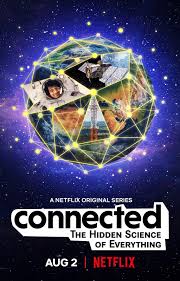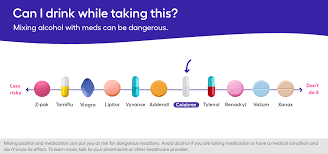The Power of Being Connected
In today’s digital age, being connected has taken on a whole new meaning. With the click of a button, we can instantly reach out to friends and family across the globe, stay updated on current events, and access a wealth of information at our fingertips.
But being connected goes beyond just technology. It’s about forging meaningful relationships, building networks, and creating a sense of community. When we feel connected to others, we experience a sense of belonging and support that can have a profound impact on our well-being.
Studies have shown that social connections are vital for our mental and emotional health. Having strong relationships can reduce feelings of loneliness, boost self-esteem, and provide a sense of purpose. Whether it’s through face-to-face interactions or virtual communication, nurturing these connections is essential for our overall happiness.
Being connected also opens up opportunities for collaboration and growth. When we engage with others who share our interests or goals, we can learn from each other, gain new perspectives, and achieve more together than we ever could alone. Whether it’s in the workplace, community organizations, or social circles, being connected allows us to tap into a collective wisdom that propels us forward.
So take the time to cultivate your connections – both online and offline. Reach out to old friends, participate in group activities, join communities that align with your passions. By embracing the power of being connected, you’ll not only enrich your own life but also contribute to creating a more vibrant and supportive world for everyone.
Understanding and Enhancing Our Connections: Answers to Common Questions
- What does it mean to be connected?
- How can I improve my connections with others?
- Why is being connected important for mental health?
- What are the benefits of staying connected with friends and family?
- How does technology impact our sense of connection?
- What are some ways to build a strong network of connections?
- Can social media help or hinder our ability to feel connected?
- What role does communication play in fostering meaningful connections?
- Are there any negative effects of being overly connected?
What does it mean to be connected?
Being connected means more than just having access to technology or being online. It encompasses a sense of belonging, forming meaningful relationships, and establishing networks that provide support and community. To be connected is to feel a bond with others, whether through shared experiences, common interests, or mutual goals. It involves fostering connections that enrich our lives, promote collaboration and growth, and contribute to our overall well-being. Being truly connected means recognizing the value of relationships – both virtual and in person – and embracing the power of human connection to create a sense of unity and purpose in our lives.
How can I improve my connections with others?
To improve your connections with others, it’s essential to prioritize genuine communication and active listening. Show interest in others by asking thoughtful questions and being present in conversations. Building trust is key, so be authentic, empathetic, and supportive in your interactions. Engage in shared activities or interests to create common ground and foster a sense of belonging. Remember to maintain regular contact and follow up on conversations to demonstrate your commitment to the relationship. By investing time and effort into nurturing meaningful connections, you can cultivate stronger bonds and enrich both your personal and professional life.
Why is being connected important for mental health?
Being connected is crucial for mental health because human beings are social creatures by nature. Building and maintaining meaningful relationships with others provides a sense of belonging, support, and validation. These connections help reduce feelings of loneliness, anxiety, and depression. When we feel connected to others, we are more likely to share our thoughts and emotions openly, leading to better emotional well-being. Social connections also offer opportunities for mutual support, encouragement, and understanding during challenging times. Overall, being connected plays a significant role in promoting positive mental health and fostering a sense of community and belonging.
What are the benefits of staying connected with friends and family?
Staying connected with friends and family offers a multitude of benefits for our overall well-being. Maintaining these relationships provides a support system that can help us navigate life’s challenges, reduce feelings of loneliness, and increase our sense of belonging. Regular communication with loved ones fosters emotional connections, boosts our mood, and enhances our mental health. Through sharing experiences, thoughts, and emotions with those close to us, we can feel understood, valued, and supported. Additionally, staying connected with friends and family allows for the exchange of ideas, advice, and perspectives, enriching our lives with diverse viewpoints and strengthening the bonds that tie us together.
How does technology impact our sense of connection?
Technology has significantly reshaped the way we connect with others, impacting our sense of connection in both positive and negative ways. On one hand, technology allows us to stay connected with friends and family members regardless of geographical distances, fostering communication and relationships that might otherwise be challenging to maintain. Social media platforms, messaging apps, and video calls have made it easier than ever to reach out and share moments with loved ones. However, the constant presence of technology in our lives can also lead to feelings of isolation and disconnection. The prevalence of digital communication can sometimes create barriers to authentic interactions, replacing meaningful face-to-face connections with superficial online exchanges. Striking a balance between utilizing technology as a tool for connection while also prioritizing genuine human relationships is key to navigating the impact of technology on our sense of connection in today’s interconnected world.
What are some ways to build a strong network of connections?
Building a strong network of connections requires intentional effort and genuine engagement. One effective way is to attend networking events, conferences, and industry meetups where you can meet like-minded individuals and expand your circle. Additionally, leveraging social media platforms such as LinkedIn can help you connect with professionals in your field and stay updated on industry trends. Building relationships through mentorship programs or volunteering opportunities is another valuable approach to expanding your network. Remember that building a strong network is not just about making connections but also about nurturing them through regular communication, offering support, and being willing to help others in return. By being proactive and authentic in your interactions, you can build a robust network that will benefit you professionally and personally.
Can social media help or hinder our ability to feel connected?
Social media can have a complex impact on our ability to feel connected. On one hand, social media platforms provide a convenient way to stay in touch with friends and family, especially those who are far away. They can help us maintain relationships, share experiences, and feel connected in a digital world. However, the curated nature of social media can also lead to feelings of inadequacy or FOMO (fear of missing out), as we compare our lives to others’ highlight reels. Additionally, excessive time spent on social media can detract from real-life interactions and deepen feelings of isolation. It’s important to strike a balance and use social media mindfully to enhance rather than hinder our sense of connection with others.
What role does communication play in fostering meaningful connections?
Communication plays a pivotal role in fostering meaningful connections. It serves as the bridge that allows individuals to express their thoughts, emotions, and experiences, creating a deeper understanding and empathy between people. Effective communication involves active listening, clear expression of ideas, and genuine engagement, all of which contribute to building trust and strengthening relationships. By communicating openly and authentically, individuals can establish connections based on mutual respect, shared values, and a sense of belonging, ultimately enriching their personal and professional lives.
Are there any negative effects of being overly connected?
In our modern, hyper-connected world, there can be negative effects associated with being overly connected. Excessive use of technology and constant connectivity can lead to feelings of overwhelm, anxiety, and burnout. Being constantly plugged in may also disrupt our ability to focus, leading to decreased productivity and difficulty in forming deep, meaningful relationships. Additionally, spending too much time online can contribute to a sedentary lifestyle, impacting our physical health. It’s important to find a balance between staying connected and unplugging to prioritize self-care and well-being in this digital age.




